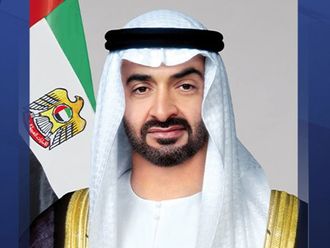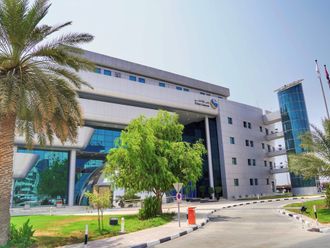Why focus on happiness?
It’s a widely circulated questions in the recent years. Why happiness? Why has happiness become a part of the government’s and [Shaikh] Mohammad Bin Rashid’s discourse and part of the UAE national agenda? I used to ask myself simple but profound questions: what is my real role as a leader? What is my job? Do I run a government? What is the real role of the government? Is it just issuing and executing laws and policies or maintaining rights and achievements? Indeed, our role will be more profound, influential and inspirational when we seek to ensure the happiness of people. We are not perfect nor are dreamers and we are not strangers from happiness. Since the dawn of the history, everyone is seeking happiness and 2,400 years back, Aristotle said that the end goal of politics was to achieve happiness and that a government is like a living being - it evolves and always seeks to achieve moral perfection and happiness.
Achievements
When I assumed office [as the Vice-President and Prime Minister of the UAE and Ruler of Dubai] in 2006, I received a lot of congratulations and advice but also warnings from some friends. I received phone calls from experts who wished me success but said hesitantly they did not expect too much. But look at today: we built a ministerial work team, developed plans, strategies, launched the UAE 2021 vision, got rid of public debts, trained thousands of employees, launched awards, developed services and amended laws. Our ambitions reached Mars and the UAE people are now among the world’s happiest .
The UAE’s principles
The UAE, since its birth, has been based on several administrative, humanitarian and leadership principles. The most significant ones among them are optimism about the future, expecting the best and believing in one’s capacities and potential, and most importantly our trust in Allah. These principles together fall under the umbrella of positivity and help bring about happiness.
Can politics be positive?
I once had a conversation with media personalities and intellectuals during Ramadan. What drew my attention was a sentence by one of them. He said you seem to be more of an economist than a politician. I smiled and said, that depends on how you define politics and philosophy. You can’t be successful in running a country’s economy without being a smart politician and you can’t be successful on the ground without having a vision and philosophy that direct you.
The power of youth
We have 200 million Arab young in the Arb world and they have to choose between two ways: Either they lose hope in a better future and a better life, thus falling prey to extremist ideas and sectarian or racial conflicts, or they have to have a real hope in the future, a great confidence in a better life and a positive power to create a better country. Therefore, we have to create a positive atmosphere in the Arab world and promote the values of positivity, tolerance and optimism so that it can get out of the cycles of conflicts and tension. And in the UAE, we have started this mission, spreading these values and we brought about a radical change in our government. We appointed a minister for tolerance and one for happiness to promote these concepts, as well as another for youth to convey the aspirations of the youth.
The ministries of hope
I have received several questions, comments and calls following the UAE’s largest ministerial reshuffle through which we appointed ministers for tolerance, happiness, future and a 22-year-old minister for youth. Some expressed their admiration but others were surprised. In fact, we have conducted changes because of what we learned for the past five previous years from ongoing incidents in the region. We learned that ignoring the youth who account for more than a half of our societies and not responding to their aspirations is like swimming against the tide... When governments spurn their youth and block their path to a better life, they slam the door in the face of the entire society. We are proud that the UAE is a young country. And we are proud of our youth. We invest in them and empower them precisely because they are our future. We believe that they are faster than us in acquiring and processing knowledge.”










